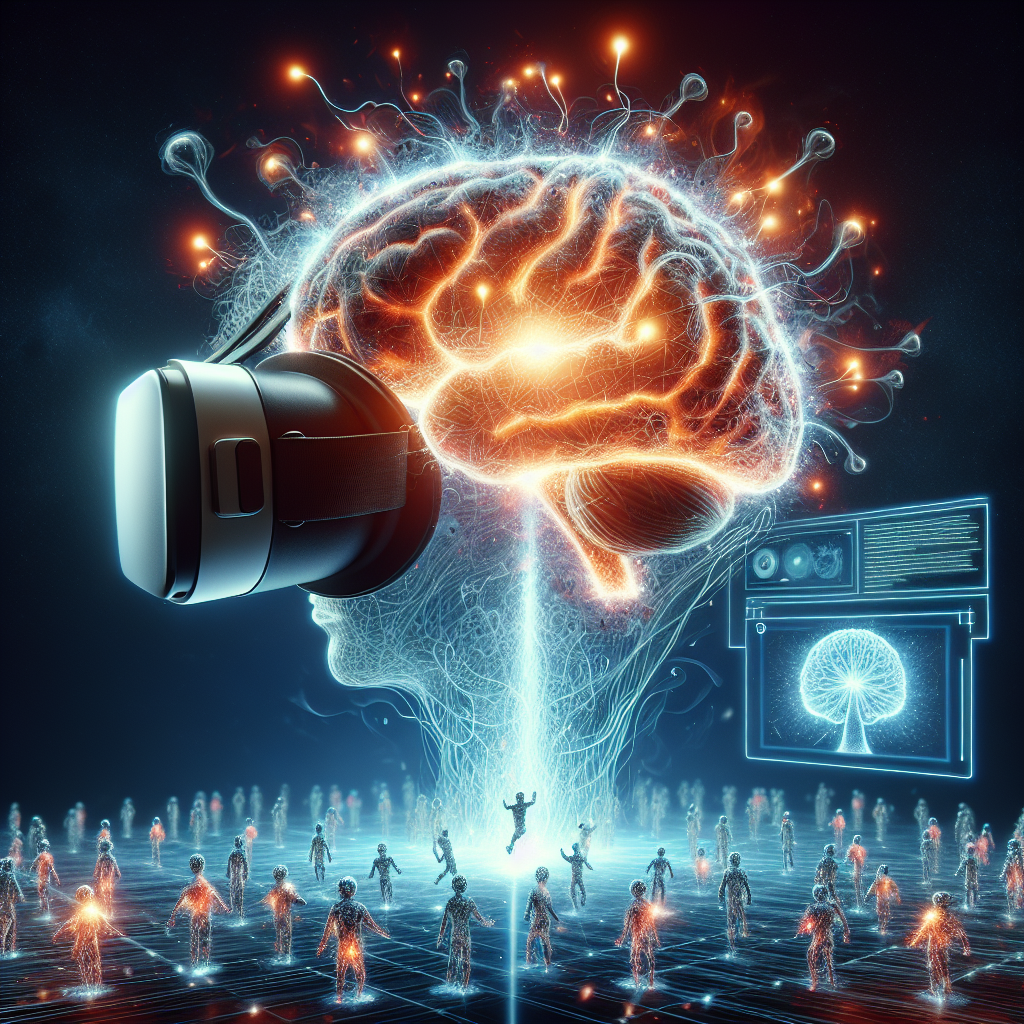Unlocking the Power of Virtual Reality: How VR Enhances Cognitive Training
Virtual Reality (VR) technology has made significant strides in recent years, rapidly transforming from a niche gaming tool to a mainstream technology that is being utilized across various industries. One area where VR is increasingly being used is in cognitive training, where it has shown remarkable potential in enhancing learning and memory.
Cognitive training refers to a variety of exercises and techniques designed to improve cognitive functions such as memory, attention, and problem-solving skills. These exercises are often used to help individuals, particularly those with cognitive impairments or neurological conditions, to enhance their cognitive abilities and maintain mental sharpness.
The use of VR in cognitive training has several advantages over traditional methods. By immersing users in a realistic and interactive environment, VR can create a more engaging and stimulating experience that is more likely to capture and maintain their attention. This immersive experience also allows users to practice real-life scenarios in a safe and controlled manner, providing a more effective way to learn and retain information.
One of the key benefits of VR in cognitive training is its ability to create highly customizable and personalized training programs. Using VR technology, trainers can create scenarios tailored to each individual’s specific needs and abilities, allowing them to concentrate on areas where they need the most improvement. This personalized approach can lead to more effective and efficient training outcomes, as users are more likely to engage with content that is relevant and meaningful to them.
Moreover, VR can also provide instant feedback and performance metrics, allowing users to track their progress and make adjustments as needed. The ability to receive real-time feedback can help users identify areas for improvement and motivate them to continue working towards their cognitive goals.
One area where VR has shown particular promise in cognitive training is in the treatment of neurological conditions such as dementia and Alzheimer’s disease. Studies have shown that VR-based interventions can help improve cognitive functions, memory, and overall quality of life for individuals with these conditions. By providing a stimulating and engaging environment, VR can help slow down cognitive decline and improve cognitive abilities in these individuals.
In addition to its benefits for individuals with neurological conditions, VR has also been shown to enhance cognitive training in healthy individuals. Research has demonstrated that VR can improve memory, attention, and problem-solving skills in healthy adults, making it a valuable tool for enhancing cognitive abilities in the general population.
Furthermore, VR can be used to enhance cognitive training in a wide range of settings, including schools, workplaces, and healthcare facilities. By incorporating VR technology into existing training programs, organizations can provide a more engaging and effective learning experience for their employees or students.
Overall, the use of VR in cognitive training has the potential to revolutionize the way we approach cognitive enhancement and rehabilitation. By harnessing the power of virtual reality, we can provide more effective, personalized, and engaging training programs that can help individuals reach their cognitive goals and maintain mental sharpness.
FAQs:
Q: Is virtual reality safe for cognitive training?
A: Virtual reality is generally safe for cognitive training, but it is important to use it under the guidance of trained professionals. Users should take regular breaks and listen to their bodies to prevent eyestrain or motion sickness.
Q: Can virtual reality improve memory?
A: Yes, virtual reality has been shown to improve memory in both healthy individuals and those with neurological conditions. By creating immersive and engaging environments, VR can enhance memory retention and recall.
Q: How can virtual reality be used in cognitive training?
A: Virtual reality can be used in cognitive training by creating personalized and engaging training programs that target specific cognitive functions such as memory, attention, and problem-solving. Users can practice real-life scenarios in a safe and controlled environment to improve their cognitive abilities.
Q: What are the potential benefits of using virtual reality in cognitive training?
A: The potential benefits of using virtual reality in cognitive training include improved memory, attention, and problem-solving skills, enhanced engagement and motivation, personalized training programs, and instant feedback on performance.
Q: Is virtual reality effective for individuals with neurological conditions?
A: Yes, virtual reality has shown promise in improving cognitive functions, memory, and overall quality of life for individuals with neurological conditions such as dementia and Alzheimer’s disease. By providing a stimulating and engaging environment, VR can help slow down cognitive decline and improve cognitive abilities in these individuals.
